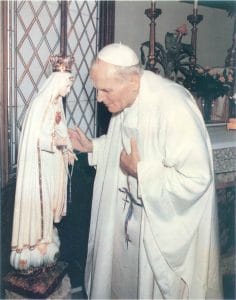The past 150 years has seen the greatest flurry of social change in the history of mankind. From the end of all monarchies to the full acceptance of democracy and the rise of Marxist regimes, the world is very different than it was a century and half ago. Not surprisingly, the Church has struggled to keep up with the massive changes, especially in her articulation and application of the Social Doctrine of the Church. Her principles are often misunderstood and misapplied, furthering the plunge into chaos that seems to be the inevitable conclusion. This is especially true when it comes to one of the “Four Pillars of Catholic Social Though”, the Principle of the Common Good.
It is admitted at the outset that the notion of the Common Good remains elusive because it can be rather complicated, compounded by the fact that the Church has largely abandoned the Scholastic language that lends itself to explaining the nature of various things. Nevertheless, this has not stopped many Churchmen from using the term in a sloppy manner because of its innate power. For once a man enters a society, he has an obligation to contribute to the Common Good. This means it can be used as a coercive term and leads some people astray when it is not used properly. It is with this in mind that I intend to shine some light on the Common Good.
Defining the Common Good
To begin, the Church provides two definitions of the Common Good, both of which are given in the Compendium of the Social Doctrine of the Church in paragraph 164:
“…the common good indicates ‘the sum total of social conditions which allow people, either as groups or as individuals, to reach their fulfilment more fully and more easily’. The common good does not consist in the simple sum of the particular goods of each subject of a social entity. Belonging to everyone and to each person, it is and remains ‘common’, because it is indivisible and because only together is it possible to attain it, increase it and safeguard its effectiveness, with regard also to the future. Just as the moral actions of an individual are accomplished in doing what is good, so too the actions of a society attain their full stature when they bring about the common good. The common good, in fact, can be understood as the social and community dimension of the moral good.”
Notice first that the definitions are difficult to reconcile. The first speaks of the utility of the Common Good and makes it seem as it is a collection of parts (“the sum total”). The second speaks of the Common Good not being a sum but an indivisible whole. We need not do the theological gymnastics necessary to reconcile the two to understand the Common Good, just look to Tradition to find a good working definition.
Once we do that, we find that the second definition is the most useful. For it speaks of the Common Good as both being common and a good. This bears further explanation. First a good is something that man desires in order to fulfill his nature. Second, there are two types of goods private and common. Private goods are those of one person alone. A common good on the other hand is one in which the good diffuses itself to many people, and in its diffusion, it is equally shared among members and is not diminished in any way when it is shared.
An illustration might help. Food is a necessary good for each man. I can speak of my peanut butter and jelly sandwich. But the minute I speak of our peanut butter and jelly sandwich, there is a problem. We cannot both have the whole sandwich. The minute I share that sandwich, there is a diminishment of the sandwich such that me taking a piece of it diminishes the amount you can have. There is only so much to go around. Properly speaking we might call the sandwich a public good because I shared it, but this does not make it a common good. Public goods are really just private goods that are shared.

This distinction is important as well for another reason. In a certain sense, by me eating my half of the sandwich, I have done harm to my neighbor by depriving him of it. What makes a common good a common good is that by doing the good, I am also willing the good of my neighbor for his own sake. By contributing to the common good, even though I benefit, I still am also benefiting my neighbor equally. This is why the image of the Common Good as being the good that flows over each member of society equally is helpful. I might have to forgo certain private goods for the benefit of the Common Good. But in doing so, I too share equally in the good. A police officer forgoes the private good of personal safety for the sake of a just ordering of society. The good of justice flows back over the police officer as well and thus he shares equally in it with every other member of his society.
The Common Good is “better” than a private good, or even a collection of private goods, because it is diffused to each member of that society. This extension of the good makes it a more noble good than merely a private good, no matter how many we are speaking. A good is higher based upon its diffusion so that St. Thomas calls the common good “divine” and says that God Himself is the ultimate Common Good. It also shows the primacy of the spiritual over the material. The material always diminishes in its diffusion while the spiritual does not.
Abusing the Common Good
Once we grasp this definition, we see the danger of only adhering to the first definition in the Compendium (which is the only one the Catechism has in #1906). It makes it appear as if the Common Good simply exists for the private good of individuals and not for the sake of the whole. This is characteristic of our time in which the good of the individual is seen to trump the good of all and how they are often seen to conflict. When we speak of the good of all we really mean all and not just some.
This misunderstanding is especially problematic in the recent CDF statement regarding vaccination: “the morality of vaccination depends not only on the duty to protect one’s own health, but also on the duty to pursue the common good.”
The former, namely that one has an obligation to protect one’s health is undoubtedly true. But health can only be and can only ever be a private good. Public health is not part of the Common Good, but a private good, even though it may extend to many people. It can never be shared equally among the members of society. It also, because it depends upon material conditions, is diminished when shared.
The danger of linking it to the Common Good is that it appears to take on an obligatory nature, despite the fact “that vaccination is not, as a rule, a moral obligation and that, therefore, it must be voluntary.” You cannot have it both ways and by connecting it to the Common Good you have muddied the waters (at best). The fact of the matter is that justice, which is intrinsic to the Common Good, is not maintained when vaccination is forced, even if it is through the soft coercion of ambiguity and the flurry of non-authoritative Magisterial prodding. Decisions regarding one’s health falls under prudential judgment and can never be imposed without doing great harm to the Common Good.


















